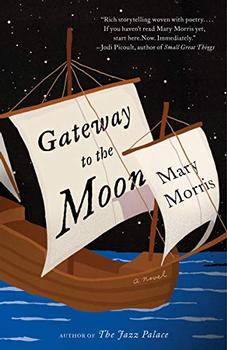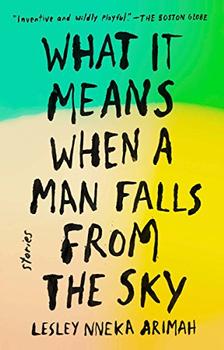Summary | Excerpt | Reviews | Beyond the book | Read-Alikes | Genres & Themes | Author Bio

Stories
by Anjali SachdevaPre-publication press has already compared Anjali Sachdeva to Kelly Link and other genre-blending writers. So it is not unexpected, when reading her debut short story collection All the Names They Used for God, to wonder where the twist will come in, when the ordinary will give way to the weird, the unexpected, and extraordinary. Those moments do arrive, but that's beside the point. In her stunning debut, Sachdeva expertly blends genres to arrive at far deeper and more profound observations about the human condition.
The nine stories that shape the collection feature ordinary characters caught in extraordinary, even tragic circumstances. Yet it is through these ordinary lives that Sachdeva brings a little bit of the bizarre, the magical, and the mysterious. A fisherman obsesses over a mermaid to the detriment of his marriage and life in "Robert Greenman and the Mermaid." In "Glass-Lung," a young woman; her ailing father whose lungs were perforated with glass during a factory explosion; and the archaeologist who has hired the woman as his assistant; travel to Egypt in search of a rare and magical antiquity forged out of lightning. And in "The Killer of Kings," John Milton is given divine inspiration by an angel that only he can see, to write Paradise Lost (see Beyond the Book).
Whether heavily steeped in the science fiction genre ("Manus") or much subtler in approach ("Logging Lake"), Sachdeva's stories have a weirdness that teases out the complexities and melancholy in life. In "Pleiades," seven sisters suffer the tragic consequences of their parents' genetic experiments when they begin to die one by one. Told between two viewpoints–one from the surviving sister and the other from a man she picks up while traveling to California–the story is a haunting, poetic rumination on death: "The water sings between my fingers, surges around my knees and shins as they press into the sand. Drink deep, my sisters say. This is where things crumble irrevocably."
The titular story is one of the most affecting and sensitively told. Two Ugandan women, the narrator and her friend Abike, turn to witchcraft after they are kidnapped as school girls by a Boko Haram-style terrorist group. The story begins when the two women return to their hometowns to reunite with their families, whom they haven't seen since their abduction. Their experiences in captivity, which are told in shocking understatement–"Do I even need to say that we were raped?"–are interspersed as flashbacks throughout. One is left to wonder how the women survived, much less escaped their kidnappers, until it is revealed that after their forced marriages to their abductors, the women used witchcraft to control their husbands. This revelation might play into certain stereotypes about controlling women, but Sachdeva is more concerned with the ways women cope in abusive environments and turn to each other for support.
Sadly, witchcraft isn't enough. Embittered and desensitized from years of abuse, the women take advantage of their husbands and other men, getting momentary pleasure from having power over them. But when the narrator's brother almost becomes one of their victims (Abike enchants him to give her all his money), she is forced to recognize what she has become. She divorces her husband and gives him a fitting punishment, but realizes in the end that she "is tired of being the one to punish him."
Deftly written and sensitively observed, All the Names They Used for God is as wise as it is thought-provoking. The real twist in Sachdeva's collection isn't that her stories delve in weirdness, but that they beautifully reveal how the simple act of being human is its own kind of magic.
![]() This review was originally published in The BookBrowse Review in April 2018, and has been updated for the
August 2019 edition.
Click here to go to this issue.
This review was originally published in The BookBrowse Review in April 2018, and has been updated for the
August 2019 edition.
Click here to go to this issue.

If you liked All the Names They Used for God, try these:

by Mary Morris
Published 2019
From award-winning novelist Mary Morris comes the remarkable story of a remote New Mexican town coming to grips with a dark history it never imagined.

What It Means When a Man Falls from the Sky
by Lesley Nneka Arimah
Published 2018
A dazzlingly accomplished debut collection explores the ties that bind parents and children, husbands and wives, lovers and friends to one another and to the places they call home.
I always find it more difficult to say the things I mean than the things I don't.
Click Here to find out who said this, as well as discovering other famous literary quotes!
Your guide toexceptional books
BookBrowse seeks out and recommends the best in contemporary fiction and nonfiction—books that not only engage and entertain but also deepen our understanding of ourselves and the world around us.